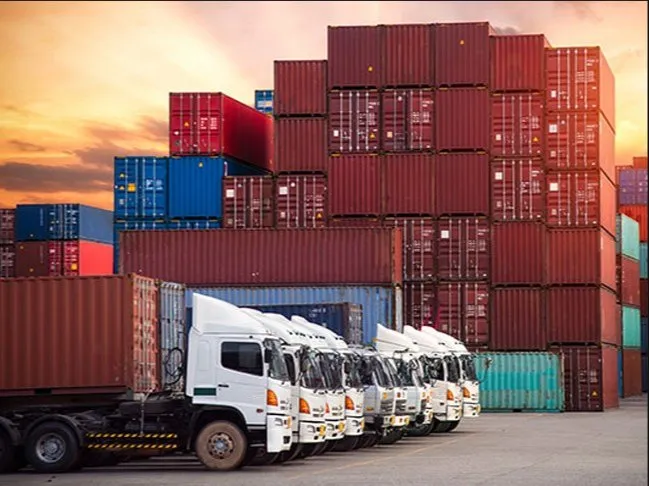Future Logistics Trends 2024 Pakistan. As we step into 2024, the convergence of technology, changing consumer behaviors, and regulatory dynamics is reshaping how goods are transported, stored, and delivered across the country. This article explores the key trends shaping the future of logistics in Pakistan, highlighting the innovations and challenges that lie ahead.
The Impact of Technology on Logistics
Technology is revolutionizing logistics operations in Pakistan, driving efficiency and transparency. From advanced tracking systems to real-time data analytics, technology integration is enhancing visibility across the supply chain. These technological advancements are crucial for optimizing routes, reducing delivery times, and minimizing operational costs.
E-commerce Growth and Its Influence
The e-commerce sector in Pakistan is booming, with more consumers turning to online shopping. This surge in e-commerce activities demands robust logistics solutions to manage the increased volume of deliveries. Companies are investing in efficient warehousing, faster delivery services, and innovative last-mile solutions to meet consumer expectations.
Sustainable Practices in Logistics
Sustainability is becoming a cornerstone of logistics operations in Pakistan. Companies are adopting eco-friendly practices such as using electric vehicles, optimizing delivery routes to reduce fuel consumption, and implementing green packaging solutions. These initiatives not only reduce environmental impact but also appeal to environmentally conscious consumers.
Last-Mile Delivery Innovations
Last-mile delivery remains a critical challenge in logistics. Innovations such as automated lockers, drone deliveries, and crowd-sourced delivery models are emerging as viable solutions to enhance last-mile efficiency. These advancements aim to improve delivery speed and accuracy, ultimately boosting customer satisfaction.
Smart Warehousing Solutions
Automation and smart technologies are transforming warehouses into high-efficiency hubs. The adoption of robotics, IoT devices, and AI-driven inventory management systems is streamlining warehouse operations, reducing human errors, and increasing throughput. These smart warehousing solutions are essential for handling the growing volume of goods in the e-commerce era.
Data-Driven Decision Making
Big data and analytics are empowering logistics companies to make informed decisions. By analyzing data from various sources, companies can forecast demand, optimize inventory levels, and enhance route planning. Data-driven decision-making enables more accurate predictions and better resource allocation, driving operational excellence.
Blockchain in Logistics
Blockchain technology is revolutionizing the logistics industry by enhancing transparency and security in the supply chain. By providing a decentralized ledger for tracking shipments, blockchain reduces the risk of fraud, ensures data integrity, and facilitates seamless transactions between parties. This technology is particularly valuable in sectors requiring stringent traceability, such as pharmaceuticals and food.
Autonomous Vehicles and Drones
The future of transportation in logistics lies in autonomous vehicles and drones. While still in the early stages of adoption in Pakistan, these technologies promise to revolutionize the delivery landscape. Autonomous trucks can operate continuously, reducing delivery times, while drones can reach remote areas more efficiently, addressing last-mile challenges.
Challenges and Opportunities in 2024
The logistics industry in Pakistan faces several challenges, including infrastructure limitations, regulatory hurdles, and cybersecurity threats. However, these challenges also present opportunities for innovation and growth. Companies that can navigate these obstacles and leverage emerging technologies will be well-positioned to thrive in the evolving logistics landscape.
Digitalization and Logistics Efficiency
Digital tools and platforms are playing a crucial role in improving logistics efficiency. From digital freight matching platforms to cloud-based management systems, digitalization is streamlining operations, reducing manual interventions, and enhancing coordination among stakeholders. This shift towards digitalization is crucial for maintaining competitiveness in the fast-paced logistics environment.
Government Policies and Support
Government initiatives and policies significantly influence the logistics sector in Pakistan. Supportive measures such as infrastructure development projects, tax incentives for technology adoption, and regulatory reforms can boost the industry’s growth. Collaboration between the public and private sectors is essential to address the logistical challenges and create a conducive environment for innovation.
Infrastructure Development
Robust infrastructure is the backbone of an efficient logistics network. Pakistan’s efforts in improving road networks, expanding port capacities, and enhancing rail connectivity are vital for the logistics sector. These infrastructure developments facilitate smoother transportation of goods, reduce transit times, and lower operational costs.
Training and Skill Development
The future of logistics in Pakistan depends on a skilled workforce capable of adapting to new technologies and practices. Investment in training and skill development programs is crucial to prepare employees for the evolving demands of the industry. Continuous learning opportunities ensure that the workforce remains competent and efficient.
Logistics Startups and Innovation
The rise of innovative startups in the logistics sector is driving transformation. These startups bring fresh perspectives, agile solutions, and cutting-edge technologies that address specific logistical challenges. Supporting these ventures through funding, mentorship, and collaborative opportunities can accelerate the industry’s growth.
Customer Expectations and Logistics
Meeting the evolving demands of customers is a key driver of logistics innovation. Consumers expect faster deliveries, real-time tracking, and flexible delivery options. Companies that prioritize customer experience through advanced logistics solutions will gain a competitive edge in the market.
Collaborative Logistics Networks
Collaboration among logistics providers, suppliers, and customers is essential for a seamless supply chain. Collaborative networks enable resource sharing, reduce redundancies, and enhance operational efficiency. By fostering partnerships, companies can create a more resilient and responsive logistics ecosystem.
Cybersecurity in Logistics
As logistics operations become increasingly digital, the risk of cyber threats grows. Protecting sensitive data, ensuring secure transactions, and safeguarding against cyber-attacks are critical for maintaining trust and continuity in logistics operations. Implementing robust cybersecurity measures is essential to mitigate these risks.
Impact of Geopolitical Changes
Geopolitical shifts can significantly impact the logistics industry in Pakistan. Changes in trade policies, regional conflicts, and economic sanctions can disrupt supply chains and affect the flow of goods. Staying informed about geopolitical trends and developing contingency plans is crucial for navigating these uncertainties.
Healthcare and Pharmaceutical Logistics
The logistics of healthcare and pharmaceuticals require specialized solutions to ensure the safe and timely delivery of critical products. Cold chain logistics, regulatory compliance, and secure transportation are vital components of this sector. As demand for healthcare services grows, so does the need for efficient and reliable logistics solutions.
Role of Professional Associations
Professional associations play a significant role in promoting


